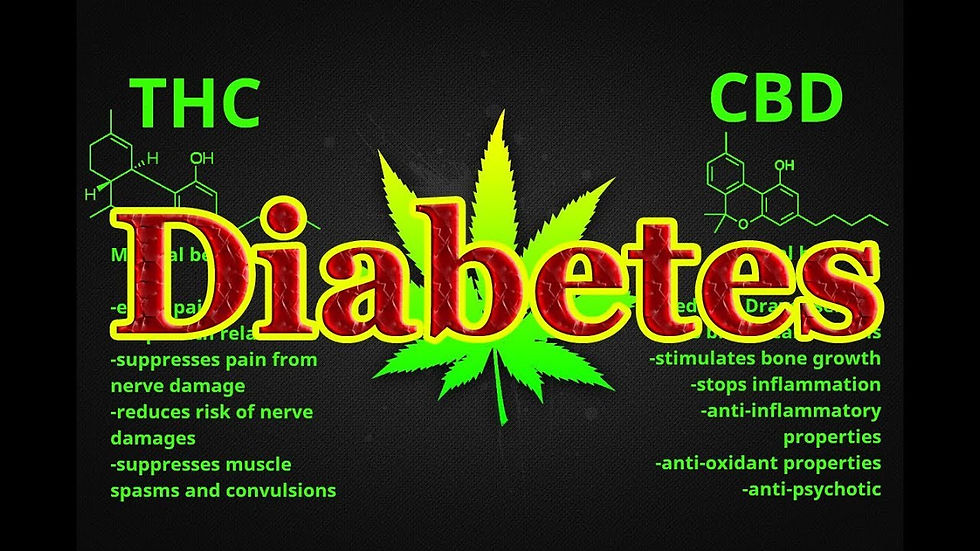CBD synergy with nurse Suzi
- wildwestweedandsee
- Jan 11
- 2 min read
Updated: Feb 22

Diabetes has been rapidly growing across the globe in recent years, while it is estimated that over 100 million people in the United States alone, either have a diabetes diagnosis or are considered pre-diabetic. This inflammatory disease occurs when blood glucose levels are elevated due to the body not producing enough insulin to convert it into energy, or the body not using the insulin effectively. Numerous studies, along with customer testimonies, have established that quality full spectrum CBD can be successful in helping regulate blood sugars and the accompanying symptoms, for both types of diabetes.
Type I Diabetes is an auto-immune disorder affecting the beta cells which are responsible for the the production of insulin, whereby the body fails to produce insulin at all. Studies show CBD acts indirectly with the endocannabinoid system to optimize insulin production by reducing inflammation in the pancreas and preventing the destruction of beta cells. CBD has also been found to reduce insulitis, as its anti-inflammatory effect decreased cytokine production.
Type II Diabetes is a metabolic disorder where the body can not produce enough insulin or the body's cells become less sensitive to it's effects. Chronic elevated blood sugar levels can occur due to lifestyle choices, genetics, and/or environmental factors. CDB has a regulatory effect on blood sugar by modulating insulin secretion and glucose uptake in the cells. It can be effective as a stand alone medication or as an addition to prescription diabetic medications.
The anti-inflammatory abilities of CBD can help improve cognition by reducing neuroinflammation, act as a neuroprotective agent in preventing retinopathy and neuropathy, reduce further kidney damage, improve metabolism to maintain a healthy weight, while also managing A1C levels. The vast network of cannabinoid receptors in the endocannabinoid system is responsible for a wide array of physiological functions and has the ability to help provide homeostasis, or overall body balance.
The ideal dosage of CBD oil in treating diabetes varies from one person to the next depending on severity of symptoms, height, weight, and your personal tolerance levels. The recommended dosage range is between 15 and 45 mg daily, but with all CBD... start low, go slow, as you can always increase the dose if symptoms are not relieved. You cannot overdose from CBD and it has a very favorable safety profile compared with all other medications (both prescription and over-the-counter). The potential side effects being rare, amount to sleepiness or diarrhea when taking VERY large doses, such as with cancer patients. As always, consult your care provider prior to starting new supplements.






Comentarios